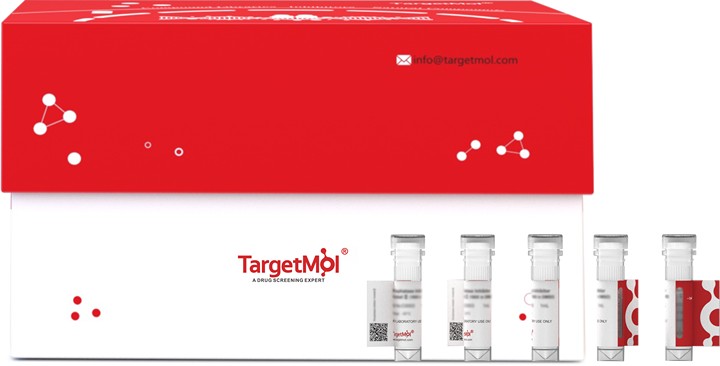购物车
 您的购物车当前为空
您的购物车当前为空
别名 FGFB, FGF-2, FGF basic, BFGF
FGF-2 Protein, Salmon, Recombinant is expressed in E. coli. The accession number is XP_0356004.


为众多的药物研发团队赋能,
让新药发现更简单!
FGF-2 Protein, Salmon, Recombinant is expressed in E. coli. The accession number is XP_0356004.
| 规格 | 价格 | 库存 | 数量 |
|---|---|---|---|
| 5 μg | ¥ 588 | 6-8日内发货 | |
| 10 μg | ¥ 987 | 6-8日内发货 | |
| 20 μg | ¥ 1,460 | 5日内发货 | |
| 50 μg | ¥ 2,480 | 5日内发货 | |
| 100 μg | ¥ 3,730 | 5日内发货 | |
| 200 μg | ¥ 5,960 | 5日内发货 | |
| 500 μg | ¥ 10,900 | 5日内发货 | |
| 1 mg | ¥ 17,800 | 5日内发货 |
| 产品描述 | FGF-2 Protein, Salmon, Recombinant is expressed in E. coli. The accession number is XP_0356004. |
| 生物活性 | EC 50 < 1.0 ng/ml as determined by a dose-response proliferation assay using murine Balb/c 3T3 cells. Based on the EC 50 , the calculated specific activity is approximately > 1.0 × 10 6 IU/mg. It is recommended to experimentally determine the optimal concentration for each specific application by performing a dose response assay. |
| 研究背景 | Fibroblast Growth Factor-basic (FGF-basic), also known as FGF-2, is a pleiotropic cytokine and one of the prototypic members of the heparin-binding FGF family. Like other FGF family members, FGF-basic has the β trefoil structure. In vivo, FGF-basic is produced by a variety of cells, including cardiomyocytes, fibroblasts, and vascular cells. FGF-basic regulates a variety of processes including cell proliferation, differentiation, survival, adhesion, motility, apoptosis, limb formation and wound healing. FGF-basic can be tumorigenic due to its role in angiogenesis and blood vessel remodeling. The angiogenic effects of FGF-basic can produce beneficial cardioprotection during acute heart injury. |
| 种属 | Salmon |
| 表达系统 | E. coli |
| 标签 | Tag Free |
| 蛋白编号 | XP_035600424.1 |
| 蛋白构建 | Full length |
| 蛋白纯度 | ≥ 95% as determined by SDS-PAGE |
| 缓冲液 | Lyophilized from a 0.2 μm filtered solution in 7.8 mM Na2HPO4 , 1.5 mM KH2PO4 , 2.7 mM KCl, 500 mM NaCl. |
| 复溶方法 | Before opening, centrifuge the vial briefly to bring the contents to the bottom. Reconstitute the lyophilized powder in PBS up to 100 μg/ml. |
| 别名 | FGFB, FGF-2, FGF basic, BFGF |
| 内毒素 | < 0.2 EU/μg of protein as determined by the LAL method. |
| 分子量 | 17.1 kDa (Predicted); 20 kDa (Non-reducing conditions) |
| 运输方式 | In general, Lyophilized powders are shipping with blue ice. Solutions are shipping with dry ice. |
| 存储 | Upon receiving, the lyophilized product remains stable for up to 6 months at lower than -70 °C. Upon reconstitution, the product is stable for up to 1 week at 4 °C or up to 3 months at -20 °C. Avoid repeated freeze-thaw cycles by making single-use aliquots before the solution is storage at -20 °C. |
对于不同动物的给药剂量换算,您也可以参考 更多